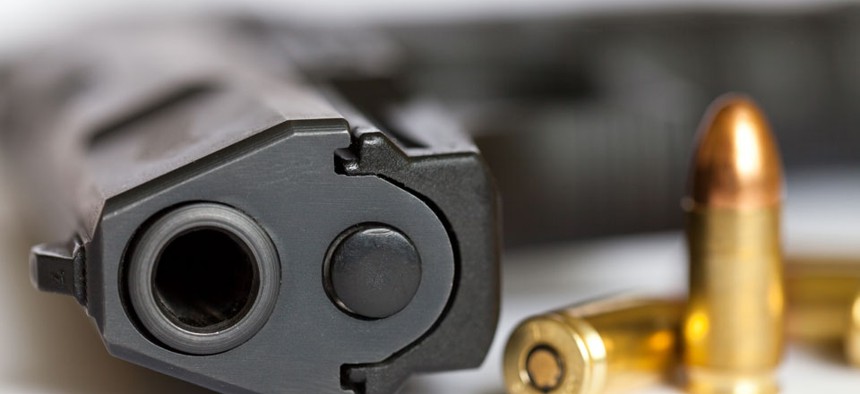
Mariusz Niedzwiedzki/Shutterstock.com
Stray Dogs: How ATF Agents Lose Their Guns
They've done so at nearly double the rate of their FBI counterparts, often due to simple carelessness.
Several months ago, the Milwaukee Journal Sentinel published the results of an expansive investigation into a Bureau of Alcohol, Tobacco, and Firearms sting program. The widespread misbehavior on display was both alarming and comical, a characterization that applies equally well to the newspaper's latest revelation: For unexplained reasons, ATF agents lose their guns with surprising frequency.
"At least 49 guns were lost or stolen nationwide between 2009 and 2013," the newspaper reports. Perhaps this would be understandable if sophisticated thieves broke into an ATF storage facility and seized a cache of weapons. But the incidents that the newspaper documents suggests a subset of ATF personnel are just careless:
ATF agents have lost track of dozens of government-issued guns, after stashing them under the front seats in their cars, in glove compartments orsimply leaving them on top of their vehicles and driving away, according to internal reports from the past five years obtained by the Milwaukee Journal Sentinel. Agents left their guns behind in bathroom stalls, at a hospital, outside a movie theater and on a plane, according to the records, obtained Tuesday by the news organization under the federal Freedom of Information Act.
In December 2009, two 6-year-old boys spotted an agent's loaded ATF Smith & Wesson .357 on a storm sewer grate in Bettendorf, Iowa. The agent lived nearby and later said he couldn't find his gun for days but didn't bother reporting it—until it hit the local newspaper. In Los Angeles in 2011, an agent went out to a bar drinking with other agents and friends, reportedly consuming four alcoholic beverages. The next morning he woke up and realized his ATF-issued Glock was gone.
It was not found.
The article goes on to note that "agency rules were not followed in many of the incidents." And ATF officials were already aware that this sort of carelessness was a problem:
The ATF has weapons stolen or loses them more frequently than other federal law enforcement agencies, according to a 2008 report from the Office of the Inspector General with the U.S. Department of Justice. In a five-year span from 2002-'07, for example, 76 ATF weapons were reported stolen, lost or missing, according to the report. That's nearly double the rate of the FBI and the U.S. Drug Enforcement Administration, when considering rates per 1,000 agents. The inspector general's office found the majority of losses and thefts were a result of carelessness or failure to follow ATF policy.
For largely political reasons, ATF went seven years without a Senate-confirmed, permanent leader, a situation that ended in August. According to NPR's Carrie Johnson, "Todd Jones is known as a good manager. And I think the biggest challenge that has confronted him and will continue to confront him is a management challenge. Out of about 25 field directors of the ATF all over the country, he's already managed to replace well over a dozen of those people." No wonder!
Let's hope he has success improving the agency's performance.
(Image via Mariusz Niedzwiedzki/Shutterstock.com)
NEXT STORY: How Should the U.S. Deal With Vladimir Putin?







